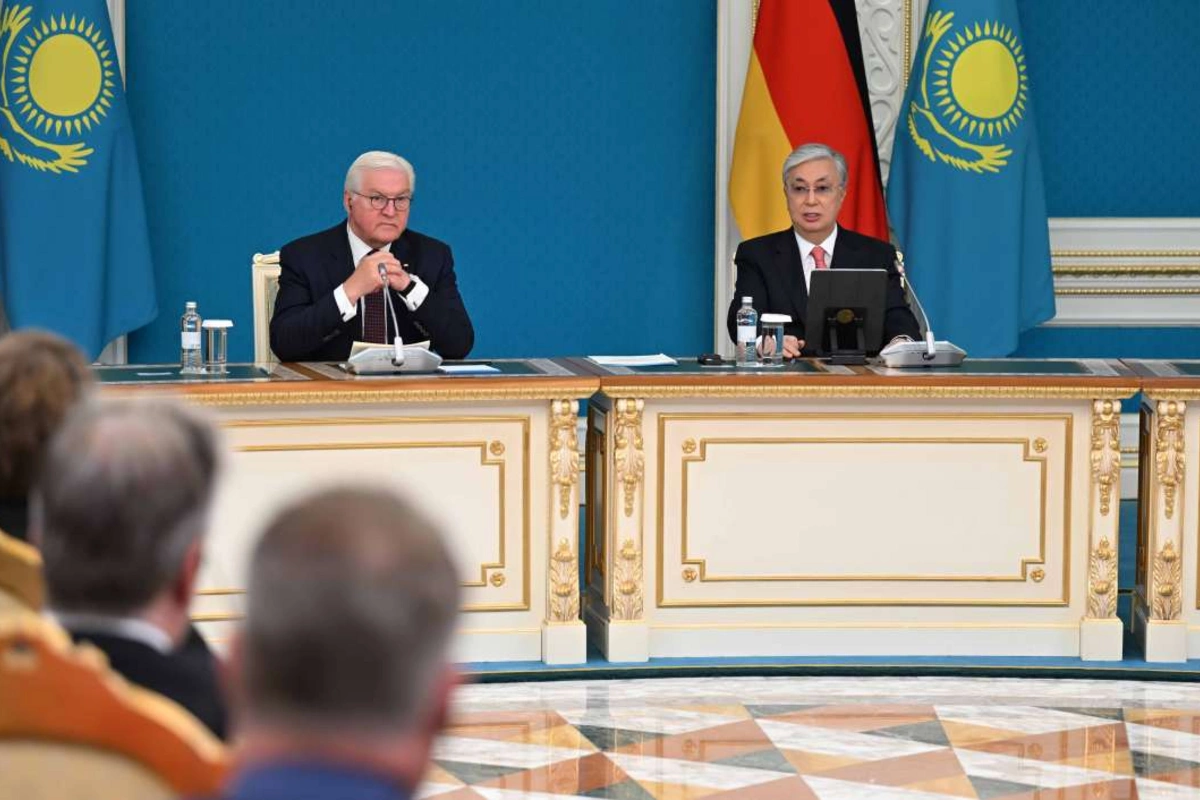
German President Steinmeier discusses close collaboration between the EU and Kazakhstan to prevent the evasion of Western sanctions on Russia amid the ongoing Ukraine crisis. He also supports an agreement for increased oil supplies from Kazakhstan to Germany, securing fuel provisions in eastern Germany.
Image: president.kz
(RFE.RL) ASTANA -- German President Frank-Walter Steinmeier told reporters after talks with Kazakh President Qasym-Zhomart Toqaev in Astana on June 20 that the European Union and the energy-rich Central Asian nation are in close contact on preventing the evasion of Western sanctions imposed on Russia over its ongoing unprovoked invasion of Ukraine.
"We need to beef up all possible efforts to prevent the evasion of sanctions. And we heard during our talks that there are close contacts between Kazakh agencies and the EU agencies about these issues," Steinmeier said.
Steinmeier hailed Kazakhstan’s efforts to work out new routes bypassing Russia to transport its exports to the European market as Russia's full-scale aggression against Ukraine continues.
Steinmeier also supported an agreement of additional oil supplies from Kazakhstan to Germany signed by German and Kazakh officials during his visit.
According to the deal, a refinery in the German town of Schwedt will receive 100,000 tons of crude oil per month by the end of next year.
Steinmeier emphasized that the agreement’s implementation will secure the future of the Schwedt refinery and fuel supplies in eastern Germany.
Тoqaev did not mention the issue of sanctions evasion, saying only that Kazakhstan "is ready to actively participate in the resolution of the situation between Russia and Ukraine by diplomatic means.”
In March, David O'Sullivan, the European Union's special envoy for the implementation of sanctions, called on Kazakhstan and other Central Asian nations in Moscow’s political and economic sphere to avoid assisting Moscow's attempts to evade sanctions imposed on Russia.
Kazakhstan is one of Russia's active trading partners and a member of the Eurasian Economic Union, a trading bloc dominated by Russia that also includes Belarus, Armenia, and Kyrgyzstan. The grouping was conceived by Moscow as a counterweight to the European Union, though experts view it as being mainly a way for Moscow to exert economic leverage over the other countries.
Since the start of Russia's full-scale aggression against Ukraine, the EU and the United States have sanctioned thousands of entities and individuals, while the U.S. Commerce Department has imposed prohibitive controls on exports to Russia and its ally Belarus.
Share on social media